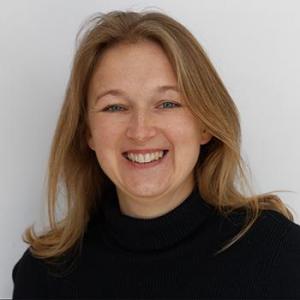New trustee firm aims to inject dynamism into pensions
Sarah Leslie has reached the end of her patience with the often “pedestrian” pace of things in the pensions industry.
“I banged on about that as a fiduciary manager for a decade,” says the former head of UK and Ireland fiduciary management at Russell Investments, and also an alumnus of consultancies Mercer and Aon. She adds that she finally concluded the best way to make pension scheme management more dynamic was “not as an adviser, but as a trustee or a non-executive director on the ground”.
If trustees are winding down, then the mindset that goes with that becomes the pedestrian mindset
This realisation has led Ms Leslie and three colleagues to found Ndapt, a new company providing services to pension schemes and their sponsors, which launched in October.
The new enterprise aims to be agnostic about where in a company or scheme structure its representatives sit — colleagues could act as trustees, non-executive directors, or as freelance pensions officers within the company. Instead, it aims to facilitate the best possible communication and flow of information between sponsor and trustees, and to enable holistic decision making within organisations.
Trustee or not trustee?
Ms Leslie gives the examples of charitable entities, or other bodies that have investment portfolios other than their pension schemes.
“It’s about making sure that everybody is pulling in the same direction. You don’t want two different pools of assets run by two different sets of people, pulling in two different directions.”
She says Ndapt will not seek to take on an adviser role, but that its founders are sceptical of consultants giving advice that is not tailored to a specific client’s needs.
She also says the company is being “quite strict” in its targeting of new appointments. “It’s about where we can make a difference.”
Ms Leslie says that while many of the trustees she has come across in her career so far are capable, “I do think that there’s a need for people to inject a bit more professionalism and business acumen into the environment”.
“If [trustees] are winding down, then the mindset that goes with that becomes the pedestrian mindset,” she says, hoping that the industry can move away from the stagnation brought in by quarterly meeting cycles.
Flexibility to appeal to diverse workforce
Structurally, Ndapt will sit somewhere in the middle of the spectrum of professional trustee companies, which ranges from franchises where practitioners manage their own appointments under an umbrella company, to more integrated firms providing a broad knowledge base but less personal service.
“What we’re trying to do is offer a platform and support network,” Ms Leslie says.
A single person will be named on contracts with schemes, although an alternate will be provided to ensure continuity at all times, and she says the company will aim to provide knowledge infrastructure to back individuals up.
With this degree of freedom on offer to future colleagues, she says Ndapt will insist on appropriate professional qualifications for their partners, and is supportive of the new accreditation standards and the Association of Professional Pension Trustees’ code of practice.
Another item on Ms Leslie’s agenda is improving diversity and inclusion within trusteeship. Rather than the typical retirement home for male industry professionals, the mother of three hopes Ndapt’s flexibility will allow mid-career professionals to continue to grow while balancing family life.
She also cautions that diversity, in so far as it benefits clients, requires robust and constructive debate inside an organisation, defending against criticism of sole trusteeship as a dilution of the diversity seen on traditional boards. “You might have a lot of people’s thinking involved on traditional boards, but it doesn’t necessarily make it any better,” she says.
Most Viewed
- What does Labour have in store for the pensions industry?
- LGPS latest: GLIL backers invest £475m for UK infrastructure push
- Dashboard costs rose by 23% in 2023, figures show
- Border to Coast launches UK strategy in major private markets push
- How the pensions industry can better support people with mental health problems


